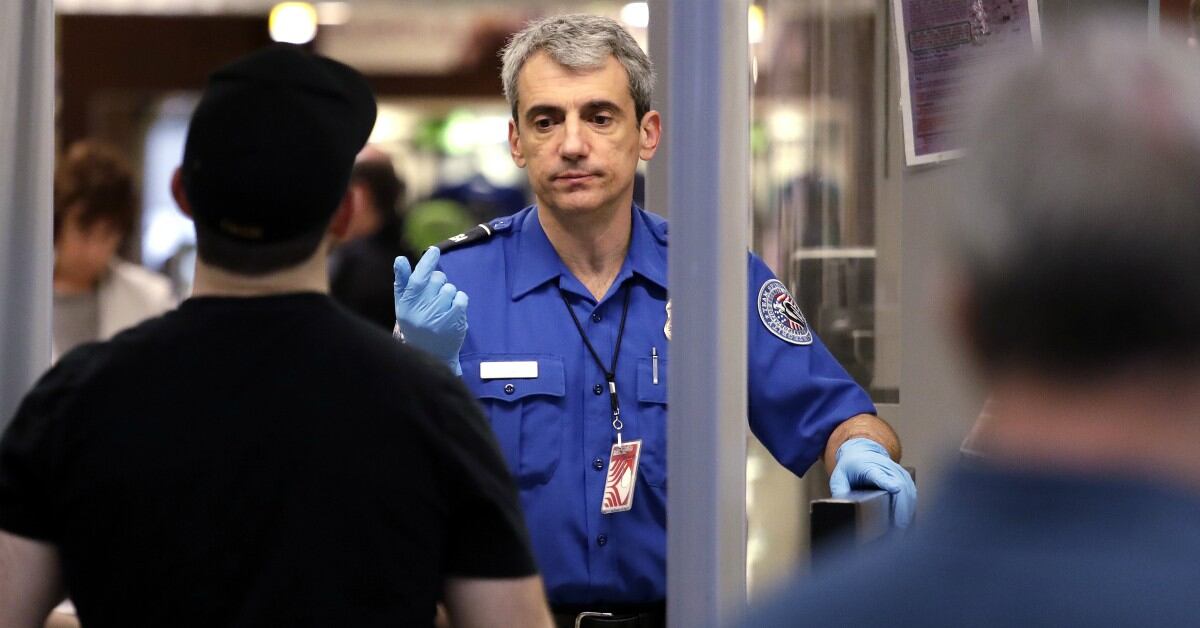Transportation Security Administration employees have some of the lowest satisfaction scores in the Department of Homeland Security and attrition at the agency has proven a significant problem for ensuring that the nation’s transportation hubs are safely screened each day.
Currently, transportation security officers are classified under a different pay and management system than most other federal employees, a situation that the cosponsors of the Rights for the TSA Workforce Act of 2021 claim is at the root of such low satisfaction and high attrition.
“Since TSA’s establishment nearly 20 years ago, its workforce has lacked the workplace rights and protections afforded to other federal employees. Despite the dedication and the diversity of the transportation security officers, or the TSOs, they remain among the lowest-paid workers in the entire government,” said Rep. Bonnie Watson Coleman, D-N.J., at a May 4 House Homeland Security Committee hearing on the bill.
RELATED

Namely, TSOs are not entitled to the same collective bargaining protections, whistleblower protections or pay increase guarantees as those employees classified under Title 5 of U.S. Code, the most common job classification in the federal government.
According to Everett Kelley, national president of the American Federation of Government Employees, the current system for TSA employees enables managers to get away with workplace abuses that could be prevented by Title 5 protections, and TSO pay would be improved under the new bill.
TSA employees have already been left behind on legislation guaranteeing paid parental leave, for example, because they were not part of Title 5, though that oversight was later fixed by additional legislation.
It is no question that TSA has a problem keeping its employees.
According to Office of Personnel Management employment data, the agency lost 6,467 employees in 2020 and only hired 3,992 in that same year. Out of the 59,400 employees who worked at the agency as of December 2020, the agency lost approximately 4 percent of its employees without new hires to cover the vacancies.
As Tom Warrick, nonresident senior fellow and director of the Future of DHS Project at the Atlantic Council, noted, TSA has consistently terrible Federal Employee Viewpoint scores surrounding pay, performance-based rewards and career advancement.
TSO pay can start as low as $29,000 a year, approximately the equivalent of a GS-4 position under Title 5.
But some Republican members of the committee pushed back against the proposed change, arguing that Title 5 is a problematic system in the first place that could get in the way of the personnel flexibility needed to address national security concerns.
“While the proposed act rightly provides that no employee shall suffer a loss in pay, there is no guarantee that employees will continue to receive pay increases and benefits they might otherwise have received, such as split shift pay differentials and expanded leave transfer options. There is no guarantee that TSOs will be classified at any particular grade level. It is entirely possible that TSOs will be classified at a GS grade that provides for a lower pay range than is currently available to them. It is also possible that they will be classified at a grade level that requires far more funding than TSA currently has,” said Jeffrey Neal, principal and founder of Chief HRO, LLC.
“The six month transition period in the proposed act does not provide adequate time to conduct the necessary planning, system changes and training, and my 33 years of experience in federal human capital management convince me that rushing to implement something so far reaching almost certainly ensures it will be done badly.”
Title 5 and the General Schedule system it covers have certainly come under fire in recent years for presenting an outdated system that is designed to compensate clerical work rather than the predominantly service and IT work conducted by the government today.
“The solution is to fix Title 5, not to deny TSA employees the benefits of Title 5, simply because it has flaws,” said Warrick.
And the bill itself is not wholly opposed by Republicans, as nine of the currently 153 cosponsors of the legislation are Republican members. A similar bill passed the House last year, but did not receive any movement in the Senate.
Jessie Bur covers federal IT and management.
In Other News




